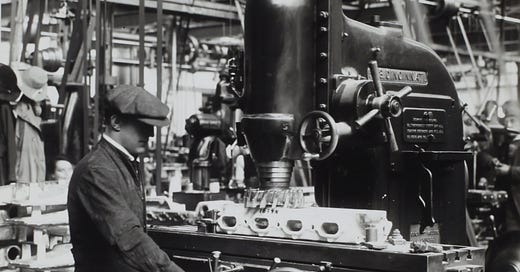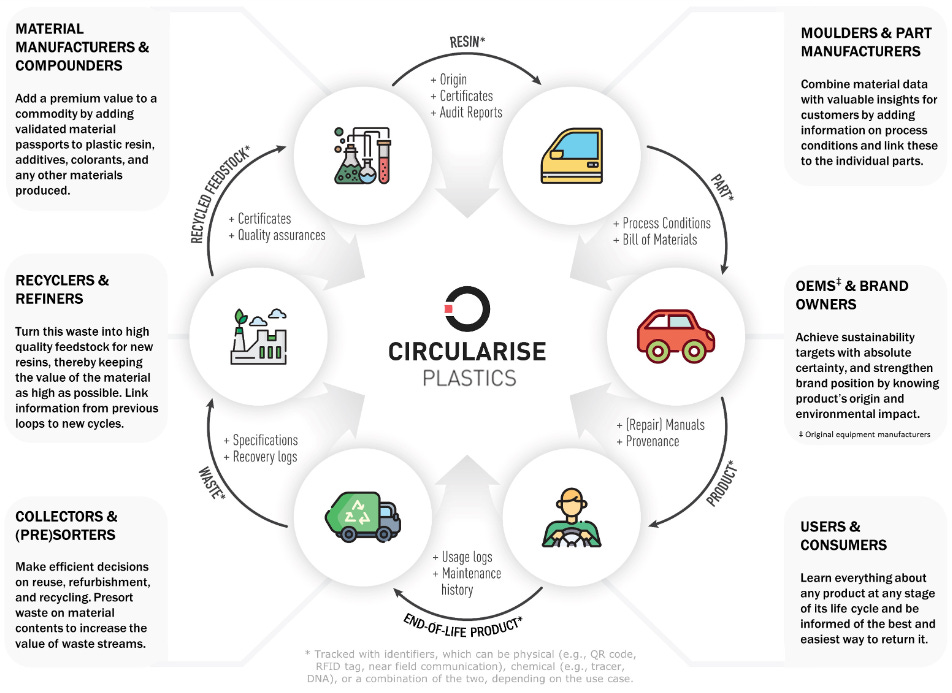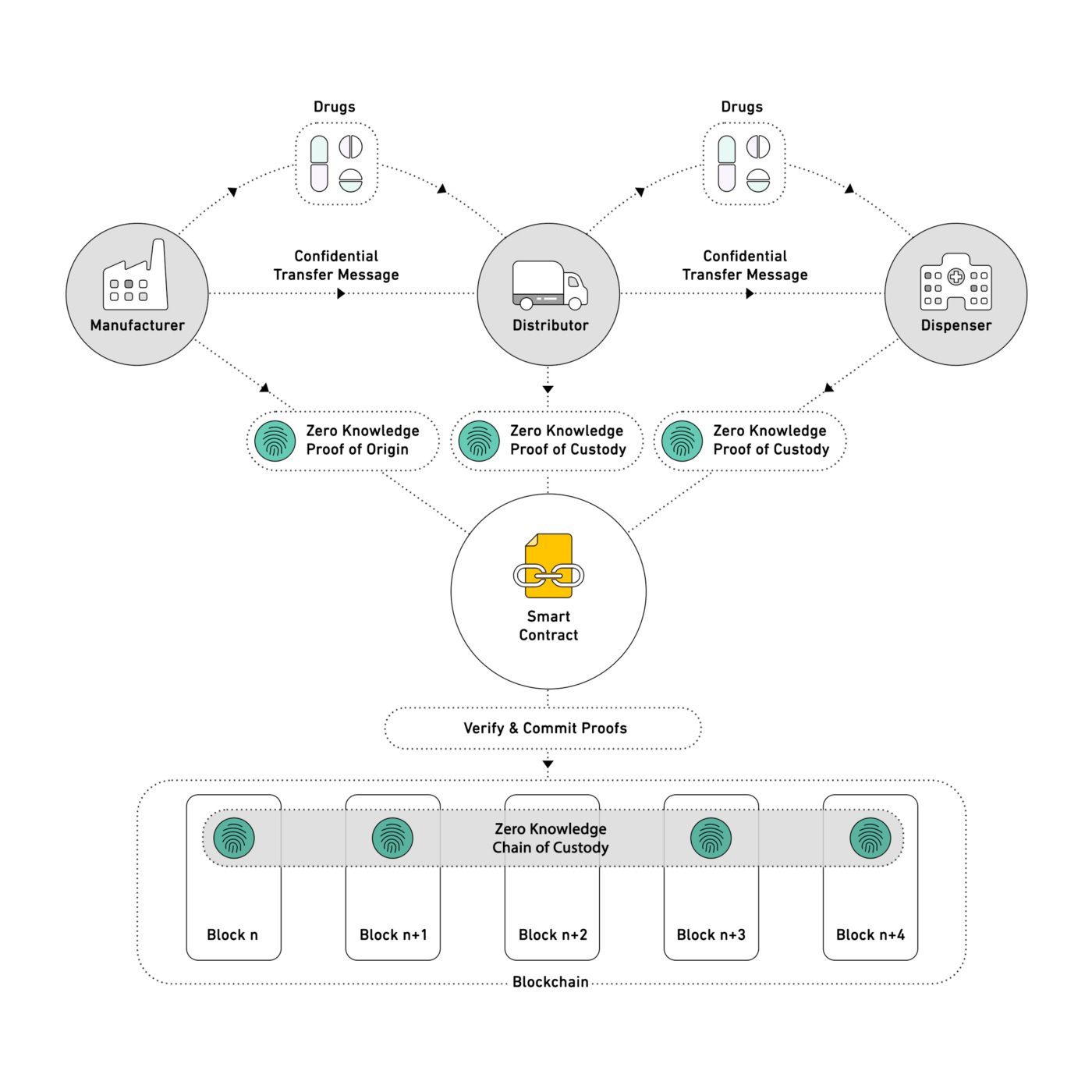💻 Zero knowledge proof and supply chain transparency
What is zero knowledge proof, Plastic waste, CKY (Customer know you)
This is the 2nd of 6 essays for 1729 Writers. Apply today at 1729.com.
Last weekend, I visited the Enigma Cypher museum in Poznan, Poland.
I learned that years before Alan Turing cracked the enigma code used by the Nazi in WWII (as seen in the Imitation Game), a group of Polish mathematics students has invented the machine that later inspired the British. Sounds surprising.
Innovation is a stack built on top of other innovations. An incremental collaborative process. The results of human interaction. As described in the book “How innovation works” by Matt Ridley.
It then inspired me to write this week’s article on blockchain innovation, applied in one aspect of sustainability, which is supply chain transparency.
Introduction
Manufacturing a product is complex. It needs different people to work on different things, from supply to production. The famous article “I, Pencil” by the economist Leonard E Read, described that to make a simple product like a pencil, needs collaboration. From the graphite mine in Sri Lanka, to the trees grown in Northern California.
However, most of the time supply chain of a product is hidden from the public eye. As part of a company's hidden secret, to protect them from competition.
Times have changed. We are now living in the information age, data flows everywhere and becoming more available than ever before.
Customers are becoming more curious about their product origins and want to know who made them. Governments are also pushing producers and retailers to take responsibility for their supply chain (e.g., German lieferkettengesetz regulation).
Previously, there are no easy way for companies to collaborate, be transparent, while at the same time protecting their sensitive information. Using blockchain is one of the solutions.
However, most blockchain is a public ledger that is inherently designed to be accessible and open for anyone to view.
With new challenges, we also need to think of new ways. Here is where zero-knowledge proof could help.
💻 What is zero-knowledge proof?
What is zero-knowledge proof (ZKP)? it is a secure method to prove a statement that is true, without risking the security of the data or providing unnecessary data, to verify the statement.
In a simple example, let’s use the “Where’s Waldo” game. To prove that we know where Waldo is without leaking his location in a picture, we can cut out Waldo and show it to the verifier. In this case, we are able to prove our statement is true, and keep Waldo’s whereabout hidden (Source).
To get more detailed explanation, check out the video below.
I first heard about this concept after listening to one of Tim Ferris’s podcasts talking about Zcash, a cryptocurrency that uses zk snarks (Zero-Knowledge Succinct Non-Interactive Argument of Knowledge).
Unlike Bitcoin which has a public ledger, Zcash has a “shielded” transaction to provide anonymity of the user.
In this article, I will not go too deep on technical details, but rather provide examples of how ZKP can be used to increase supply chain transparency. Imagine if you are in university, it is only a brochure to join the 101 course 📖.
♻️ Plastic waste: Sharing is caring
Circularise, a supply chain transparency startup, is using “Smart questioning” a version of ZKP in the Ethereum blockchain to provide a transparent data exchange without disclosing the identities of the parties involved.
By applying this to plastic production, waste management companies can better identify the material composition for recycling purposes. For example, if the waste contains other additives such as hazardous materials or flame retardant, they will have the required information to treat it properly.
Circularise has worked with Covestro (one of the biggest producers of plastic polymers) to create plastic material that can be traced in the blockchain. More traceable plastics, fewer plastics in the ocean!
Not only for plastics, but Circularise is also working to implement its smart questioning technology in other industries such as car manufacturing with Porsche, and rare earth metal used in batteries.
Source: Blockchain research institute
🤔 From KYC (Know your customer) to CKY (Customer know you)
Qedit, a blockchain infrastructure company, uses cryptography and ZKP for supply chain traceability. It issues a digital token and a private key for a manufacturer.
The token is passed along to different parties in the distribution channel when the physical goods are transported (e.g logistics providers, distributor, etc.).
Proof of transfers between the parties is recorded on the blockchain, without sharing any confidential data such as price or trade volume. The details of the transaction can only be viewed with a private key owned by the manufacturer, which could be shared with selected people, such as customers or auditors.
Qedit has worked with companies like Samsung and Deloitte to create a secure and trustless business interaction.
Another example is Chronicled, a company applying ZKP to fight counterfeit drugs. They use peer-to-peer and decentralized network to automatize transactions between a trading partner in the life science industry.
With ZKP, Chronicled provides a mean to trace and verify that the drugs sold in the market are compliant to the regulation and not counterfeit. Which could save lots of lives. Chronicled has already worked with big players such as Pfizer and Bayer.
Source: Chronicled
Conclusion
In the age of information, we are living in an open environment, but we also would like to maintain our privacy. It’s a difficult contradiction. If applied properly, zero-knowledge proof could make this happen.
People say that data is the new oil, the most valuable resource in the 21st century. But oil is bad for the environment and tightly controlled by several players.
We should have a new mindset, thinking that data is like water. It is a source of life that can flow freely, but need to be used responsibly.
As Bruce Lee once said, be like water my friend🌊!
Thanks for reading this article.
Subscribe for free below to get regular stories on sustainability and tech.





